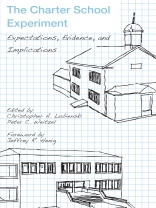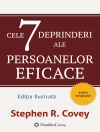When charter schools first arrived on the American educational scene, few observers suspected that within two decades thousands of these schools would be established, serving almost a million and a half children across forty states. The widespread popularity of these schools, and of the charter movement itself, speaks to the unique and chronic desire for substantive change in American education. As an innovation in governance, the ultimate goal of the charter movement is to improve learning opportunities for all students—not only those who attend charter schools but also students in public schools that are affected by competition from charters.
In
The Charter School Experiment, a select group of leading scholars traces the development of one of the most dynamic and powerful areas of education reform. Contributors with varying perspectives on the charter movement carefully evaluate how well charter schools are fulfilling the goals originally set out for them: introducing competition to the school sector, promoting more equitable access to quality schools, and encouraging innovation to improve educational outcomes. They explore the unintended effects of the charter school experiment over the past two decades, and conclude that charter schools are entering a new phase of their development, beginning to serve purposes significantly different from those originally set out for them.
Om författaren
Christopher A. Lubienski is an associate professor of education policy and a fellow at The Forum on the Future of Public Education at the University of Illinois. He is also a fellow with the Education Policy Research Unit at Arizona State University and the Education and the Public Interest Center at the University of Colorado at Boulder. His research focuses on education policy, reform, and the political economy of education, with a particular concern for issues of equity and access. His recent work examines organizational responses to competitive conditions in local education markets, including geo-spatial analyses of charter schools in post- Katrina New Orleans and a report on innovation in education markets for the Organisation for Economic Co-operation and Development. After earning a Ph D in education policy and social analysis at Michigan State University, Lubienski held post-doctoral fellowships with the National Academy of Education and the Advanced Studies Fellowship Program at Brown University, and he was recently named a Fulbright Senior Scholar for New Zealand. He has authored both theoretical and empirical journal articles on questions of innovation and achievement in school choice systems, and he is the coeditor of
School Choice Policies and Outcomes: Empirical and Philosophical Perspectives (coedited with Walter Feinberg, SUNY Press, 2008).
Peter C. Weitzel is an advanced doctoral student in educational organization and leadership at the University of Illinois at Urbana-Champaign, where he studies issues of school choice and urban educational governance. He has been working on issues of school choice for five years, and his research has appeared in
Educational Policy,
American Journal of Education, and other professional journals. As a graduate student, he has worked with the Institute of Government and Public Affairs, the Dean’s Office in the College of Education at the University of Illinois, and The Forum on the Future of Public Education. His recent school choice research includes a geo-spatial analysis of the post-Katrina New Orleans educational market and a large scale sociological analysis of choosers and nonchoosers. Peter’s studies and research have been recognized with numerous awards and scholarships from the College of Education, including the highest award given to doctoral students. Prior to graduate studies, he was the director of an Ameri Corps program that provided tutoring, character education, service learning, and a range of other services to students in high-needs communities in South Carolina. Peter received a BA in secondary education and English from Washington University in St. Louis in 2001 and an Ed M from the University of Illinois at Urbana-Champaign in 2008.












